Hoops
South Carolina Avoids Major Punishments on Lamont Evans Ruling
What are the differences in the cases?
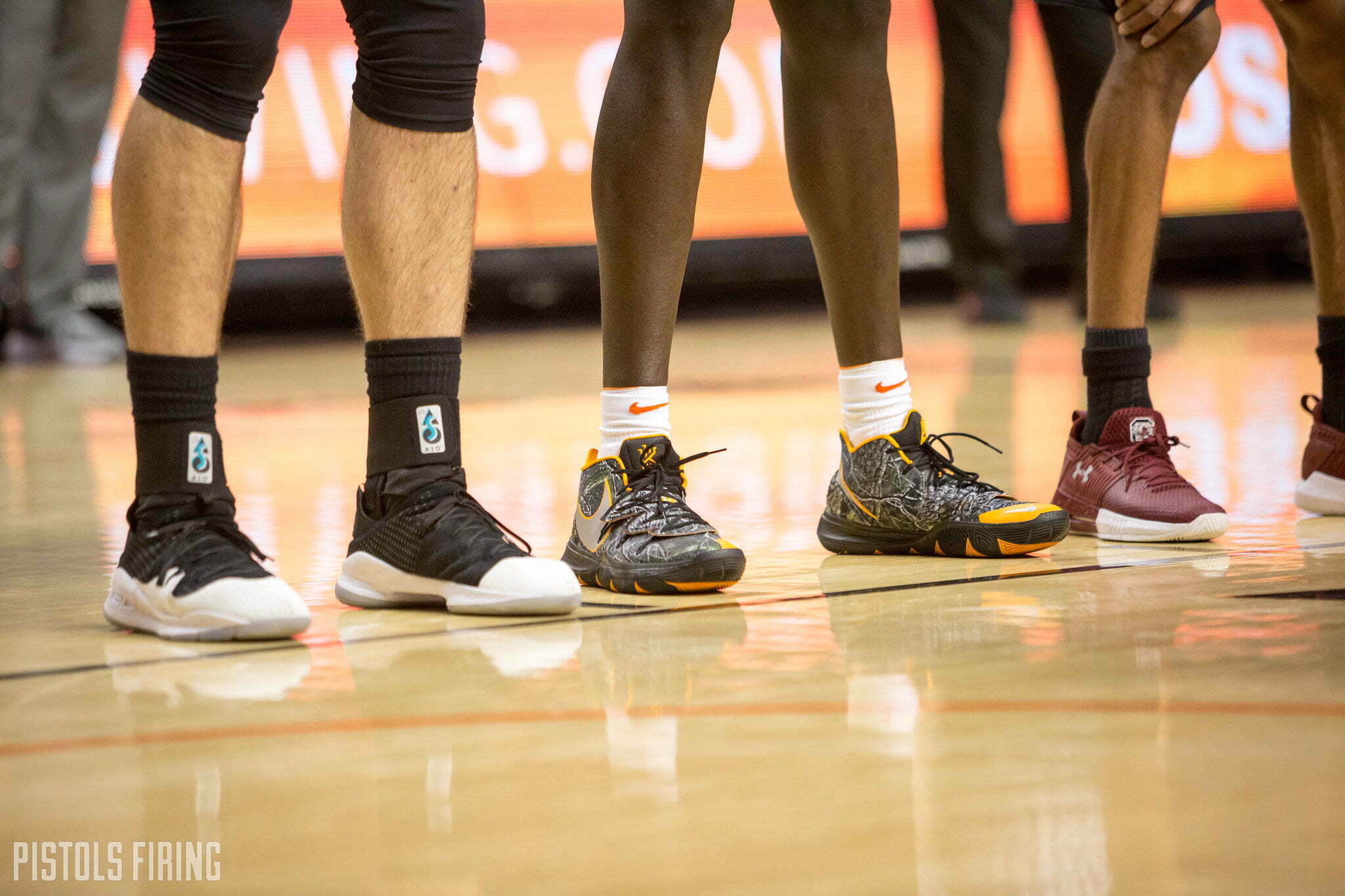
South Carolina avoided a postseason ban and a scholarship reduction when the NCAA’s Division I Committee on Infractions announced the program’s sanctions for its involvement with Lamont Evans on Thursday.
Oklahoma State was hit with a postseason ban and a loss of three scholarships for its involvement with the same coach. Evans accepted bribes from financial advisers to influence student-athletes.
Evans worked at South Carolina from 2012 to 2016 before working at Oklahoma State from 2016 until his firing in 2017.
Evans received a 10-year show-cause in both rulings, to where any NCAA member school employing him must restrict him from any athletically related duties unless it shows cause why the restrictions should not apply.
Here are a list of sanctions each program got slapped with for being involved with the same coach.
| Oklahoma State | South Carolina |
|---|---|
| Three years of probation | Two years of probation |
| A 2020-21 postseason ban for the men’s basketball team | A $5,000 fine (self-imposed by the university) |
| A $10,000 fine plus 1% of the men’s basketball program budget (self-imposed by the university) | A reduction of men’s basketball official visits to 25 during the 2020-21/2021-22 rolling two-year period (self-imposed by the university) |
| A reduction of men’s basketball scholarships by a total of three during the 2020-21 through 2022-23 academic years | A prohibition of unofficial visits in men’s basketball for a total of four weeks during the fall of 2021 and/or 2022 (self-imposed by the university) |
| A reduction of men’s basketball official visits to 25 during the 2018-19/2019-20 rolling two-year period and to 18 during the 2019-20/2020-21 rolling two-year period (self-imposed by the university) | A prohibition of men’s basketball telephone recruiting for a six-week period during the 2020-21 and/or 2021-22 academic years (self-imposed by the university) |
| A prohibition of men’s basketball unofficial visits for two weeks during the fall of 2020 and two weeks during the fall of 2021 (self-imposed by the university). The university also must prohibit unofficial visits for three additional weeks during the fall of 2020, 2021 and/or 2022 | A reduction in the number of men’s basketball recruiting person days by 17 during the 2020-21 and/or 2021-22 academic years (self-imposed by the university) |
| A prohibition of men’s basketball telephone recruiting for a one-week period during the 2020-21 academic year (self-imposed by the university). The university also must prohibit telephone recruiting for six additional weeks during the probation period | |
| A reduction in the number of men’s basketball recruiting person days by 12 during the 2019-20 academic year (self-imposed by the university). The university also must reduce the number of recruiting person days by five during the 2020-21 academic year | |
| A prohibition of the men’s basketball staff from participating in off-campus evaluations for three consecutive days during the summer evaluation periods in 2020 (self-imposed by the university) |
The same committee ruled on each case. Oklahoma State has since appealed its ruling. The Cowboys are eligible for the NCAA Tournament while the appeal is ongoing.
Oklahoma State received a Level I-Standard sanction, while South Carolina’s was ruled a Level I-Mitigated. (Evans’ own punishment was Level-I aggravated, which carried the show-cause.)
There are some minor differences in each case. According to the NCAA’s report, Evans received $18,150-$22,000 in bribes while at Oklahoma State and $3,300-$5,800 in bribes while at South Carolina.
The Oklahoma State report noted a meeting Evans sat up in a hotel room with an Oklahoma State student-athlete. The student-athlete thought he was going to Evans’ hotel room to go over game film when Evans introduced the student-athlete to an adviser, and the student-athlete given information about the services the adviser provided to professional athletes.
The Oklahoma State report also noted that Evans set up a meeting for another adviser and the mother of a non-Oklahoma State student-athlete who had declared for the draft.
The South Carolina report noted Evans agreed to arrange meetings with a South Carolina student-athlete and his family and influence them to retain an agent’s services. Although Evans did not actually arrange any meetings between the agent’s associate and student-athletes during his time at South Carolina, the committee noted that his conduct violated NCAA rules and does serious harm to the integrity of college sports.
So, with the same assistant coach involved, the differences of the cases are about $15,000 in bribe money and Evans setting up meetings and having the intent to set up meetings. The rulings from the NCAA’s Division I Committee on Infractions differ namely in an NCAA Tournament ban and a loss of three scholarships.
You can read Oklahoma State’s full ruling here and South Carolina’s full ruling here.

-
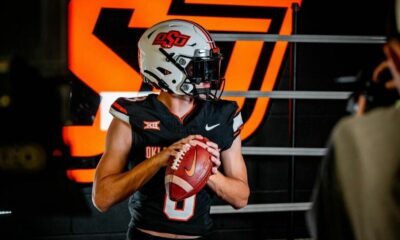
 Football3 days ago
Football3 days agoFour-Star Quarterback Adam Schobel Commits to Oklahoma State, Flips from Baylor
-
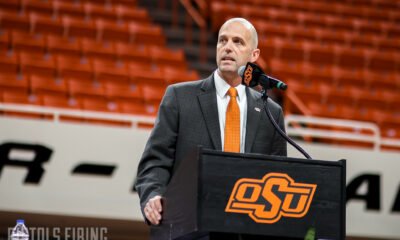
 Hoops3 days ago
Hoops3 days ago‘Keep Turning Over the Rocks’: Looking at the Portal Landscape as Lutz Looks to Solidify His First OSU Roster
-
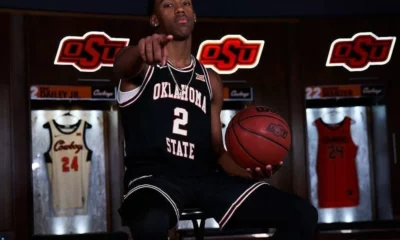
 Hoops3 days ago
Hoops3 days agoFour-Star Signee Jeremiah Johnson Reaffirms Commitment to Oklahoma State after Coaching Change
-
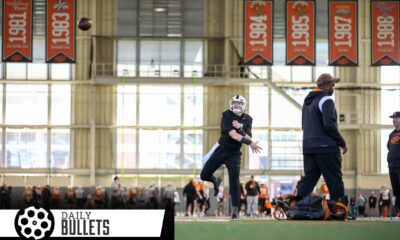
 Daily Bullets3 days ago
Daily Bullets3 days agoDaily Bullets (Apr. 23): Pokes Land Four-Star Quarterback, Retain Talent from Mike Boynton Era






